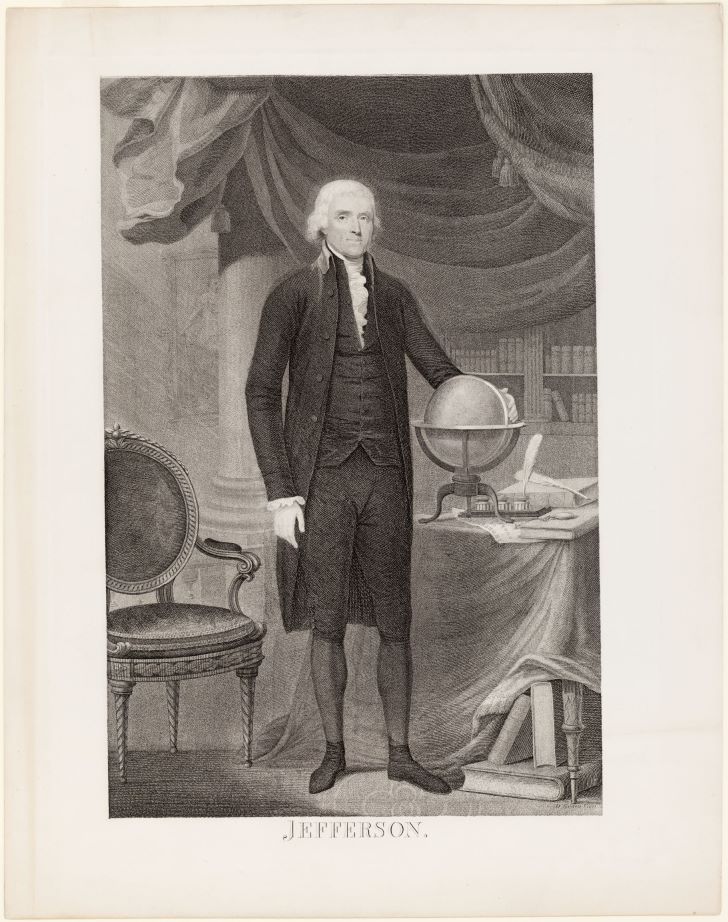Liberty Matters
Final Response

The writers in this exchange agree that the principles Jefferson so eloquently articulated in the Declaration of Independence have had a powerful and enduring impact on American and world history. As Susan Love Brown writes, they marked "the beginning of a revolution that changed the world by bringing the idea of individual rights and democracy into being." All of us reject the reductive, anti-historical logic of "new historians" for whom Enlightenment universalism is a sham and delusion, masking and enabling white supremacy on a global scale. What is most remarkable to me is that we should now feel provoked and compelled to declare this agreement, to affirm principles that have seemed so "self-evident" to successive generations of Americans from July 4, 1776 to the present day. Why, at this late date, would the new historians' demoralizing demolition of our national "origin story" gain such traction? Is it that we have begun to doubt our very existence as a nation or people in these polarized times? If so, any origin story would be seen as a mystifying, mythic cover for dominant, self-serving, hegemonic interests.
Progressives traditionally juxtaposed the "people"-the real America-to the "interests" of alien enemies and home-grown aristocrats and plutocrats. But where, in the midst of today's nativist, right-wing populist insurgency, can we find the "people"? Jefferson and his fellow patriots faced a similar challenge in 1776, for there was no people-"imagined" or otherwise-until provincial Anglo-Americans declared themselves to be one. The context was of course radically different, but revolutionaries had to overcome extraordinary obstacles in order to mobilize reluctant countrymen in a seemingly endless war, forge continental union, and gain recognition from the "powers of earth." Recognizing the need to build a diverse and inclusive common front, Revolutionaries necessarily appealed to what Hans Eicholz calls "higher public reason," or abstract, commonsensical principles that transcended-but did not obliterate-differences among self-declared "Americans." The Revolutionary coalition was jeopardized by conflicts of interest that also evoked abstract claims to liberty and rights-including constitutionally-sanctioned "property" rights in enslaved persons. The immanent contradictions in the new regime were thus obvious from the outset, particularly to hostile foreigners and increasingly to reform-minded domestic critics who drew inspiration from the Declaration.
We now rightly insist that all rights claims are not created equal. In the context of our own times, it makes good civic sense to focus on the opening paragraphs of the Declaration and emphasize, with Lucas Morel, Jefferson's unwavering commitment to human equality and opposition to slavery. As an historian, however, I am wary of abstracting and decontextualizing Jeffersonian principles from their original rhetorical and political contexts. Eicholz wants to find "consistency" and "coherence" in the Declaration, distinguishing that nation-making text from The Summary View and Notes on Virginia and privileging the first paragraphs from the grievances that constitute most of the text. "The contradictions and tensions did not inhere so much in the text itself," he writes, "but between the text and the lived experience of some of those who read it." Seen "through the lens of the opening paragraphs," there is "an immanent consistency of thought" in the Declaration, as "the bill of particulars against the king" makes "a case for universal liberty." But I would be inclined to reverse the focus. The litany of grievances, as Robert Parkinson persuasively demonstrates, enabled readers to see themselves and their own "lived experiences" in the text and so identify with fellow sufferers across the continent.
The Declaration came to life-and its principles became meaningful-as patriots made the fateful choice, not for "universal liberty," but rather for national independence. They fought and died so that their new-found countrymen could claim their place, as a people, "among the powers of earth." In the state of nature (or war), the first law of nature for any nation aspiring to independence and an equal standing was self-preservation: individual citizens could only enjoy and exercise the rights to which all men were entitled by nature within a particular civic or national context. The Declaration therefore invoked universal natural rights principles instrumentally, to mobilize-and bring into existence-a new, independent people and to secure those rights for that people against the world. Jefferson and his editors certainly believed that the principles they embraced were applicable elsewhere (we might say, immanently universal) and that the independent United States might be, in the fullness of time, a model and inspiration for other benighted and oppressed peoples around the world. But the immediate effect of American independence was to draw and enforce boundaries among peoples within and beyond Britain's breakaway provinces. Whatever Jefferson may have intended, the unhappy result was to strengthen the hands of slaveholders in order to avert the dissolution of the union and prevent the recolonization of the newly and not truly independent United States of America.
As Hannah Spahn persuasively argues, the "epistemologically vague" truths the Declaration so confidently articulated constituted a "flexible combination of subjective opinion and universal inclusiveness that could be transformed into the normative basis of a fundamental human equality." "Black intellectuals" have played a leading, if generally neglected role in revealing the Declaration's interpretative potential, adapting its principles to their particular, historically contingent contexts-and to the contemporary circumstances all Americans, if they would be a people, now face. Understanding the "conflation of contexts" that defined the Revolutionary moment and shaped the drafting and original reception of the Declaration of Independence offers Americans the kind of history-progressively inclusive, immanently universal-that can enable to imagine themselves as a people and mobilize to meet the existential threats and opportunities of their own uncertain times.
Copyright and Fair Use Statement
“Liberty Matters” is the copyright of Liberty Fund, Inc. This material is put on line to further the educational goals of Liberty Fund, Inc. These essays and responses may be quoted and otherwise used under “fair use” provisions for educational and academic purposes. To reprint these essays in course booklets requires the prior permission of Liberty Fund, Inc. Please contact oll@libertyfund.org if you have any questions.